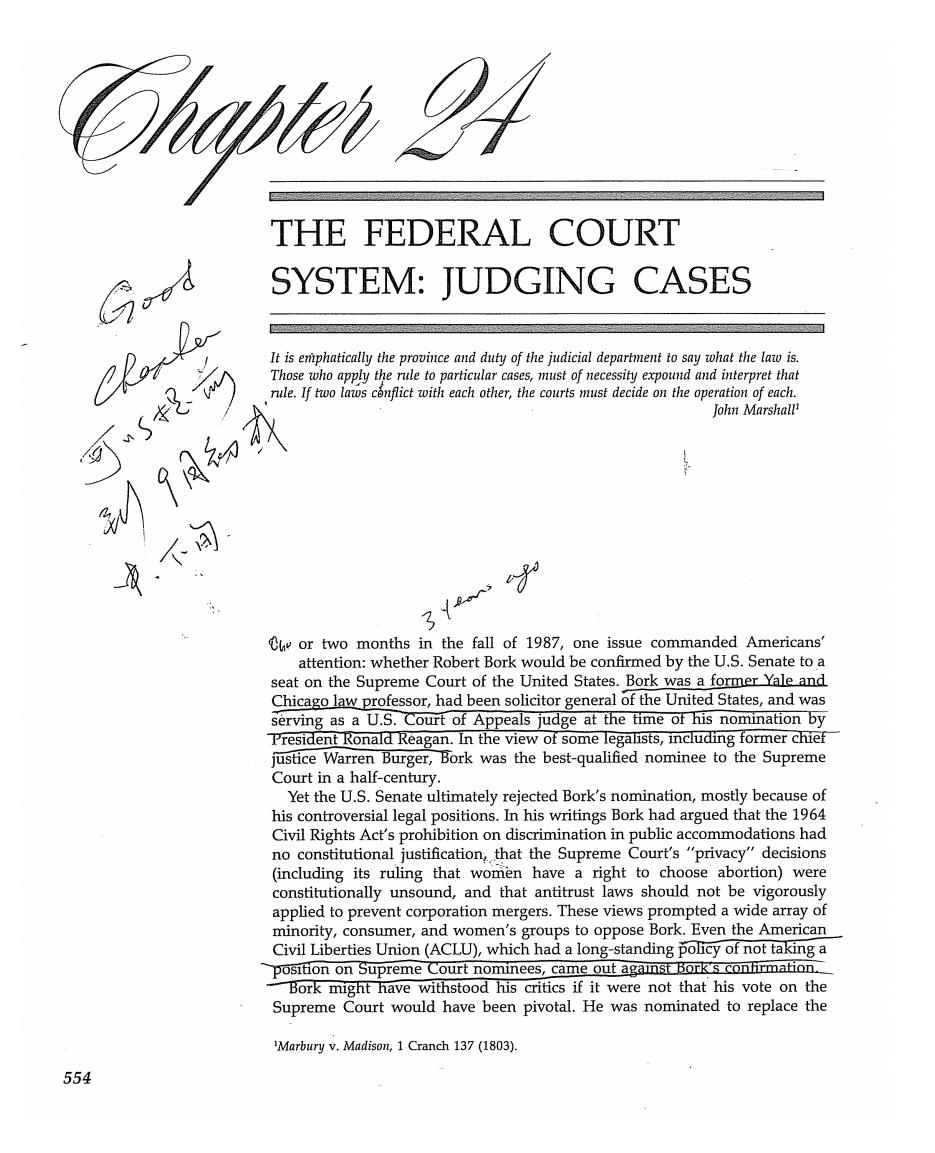正在加载图片...

℃y THE FEDERAL COURT SYSTEM:JUDGING CASES It is emphatically the province and duty of the judicial department to say what the law is Those who apply the rule to particular cases,must of necessity expound and interpret that rule.If two laws conflict with each other,the courts must decide on the operation of each. John Marshall 小9风初 Cho or two months in the fall of 1987,one issue commanded Americans' attention:whether Robert Bork would be confirmed by the U.S.Senate to a seat on the Supreme Court of the United States.Bork was a former Yale and Chicago law professor,had been solicitor general of the United States,and was serving as a U.S.Court of Appeals judge at the time of his nomination by President Ronald Reagan.In the view of some legalists,including former chief justice Warren Burger,Bork was the best-qualified nominee to the Supreme Court in a half-century. Yet the U.S.Senate ultimately rejected Bork's nomination,mostly because of his controversial legal positions.In his writings Bork had argued that the 1964 Civil Rights Act's prohibition on discrimination in public accommodations had no constitutional justification,that the Supreme Court's "privacy"decisions (including its ruling that women have a right to choose abortion)were constitutionally unsound,and that antitrust laws should not be vigorously applied to prevent corporation mergers.These views prompted a wide array of minority,consumer,and women's groups to oppose Bork.Even the American Civil Liberties Union(ACLU),which had a long-standing policy of not taking a position on Supreme Court nominees,came out against bork's confirmation. Bork might have withstood his critics if it were not that his vote on the Supreme Court would have been pivotal.He was nominated to replace the Marbury v.Madison,1 Cranch 137 (1803). 554